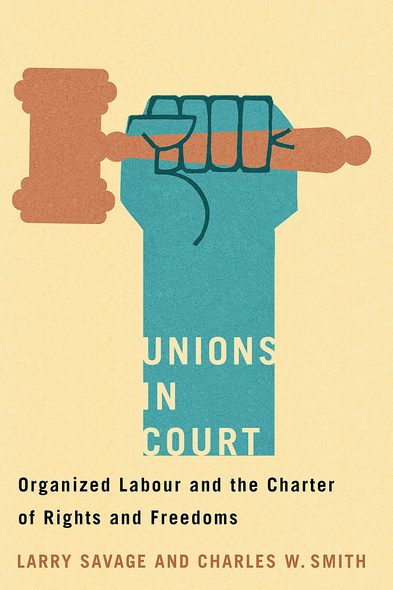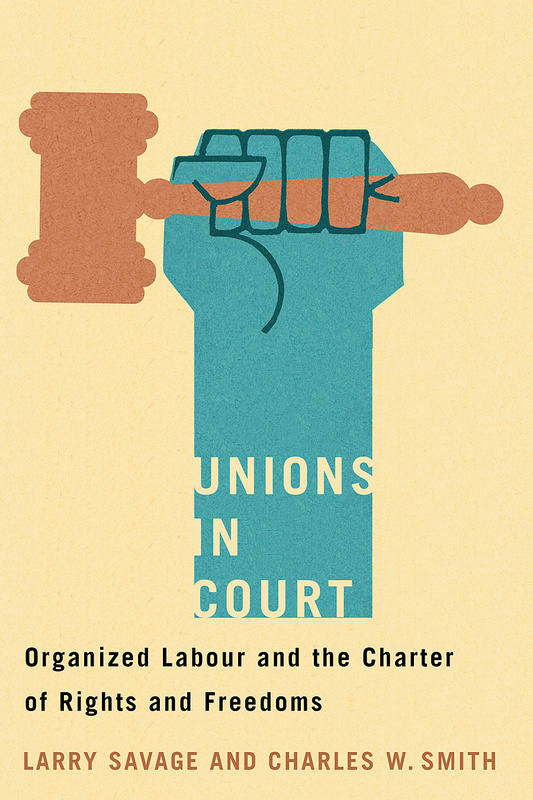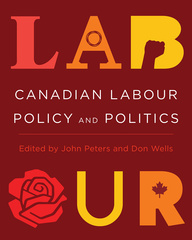
Unions in Court
Organized Labour and the Charter of Rights and Freedoms
Since the turn of the twenty-first century, Canadian unions have scored a number of important Supreme Court victories, securing constitutional rights to picket, bargain collectively, and strike. But how did the labour movement, historically hostile to judicial intervention in labour relations, come to embrace Charter-based legal activism as a first line of defense as opposed to a last resort?
Unions in Court documents the evolution of the Canadian labour movement’s engagement with the Charter, demonstrating how and why labour has adopted a controversial, Charter-based legal strategy to challenge and change legislation that restricts union rights. Savage and Smith argue that the ascendance of neoliberalism in the 1990s forced unions to reconsider their relationships with the courts and governments, and pushed unions back into the legal arena. This book’s in-depth examination of constitutional labour rights will have critical implications for labour movements as well as activists in other fields.
Scholars with an interest in contemporary labour relations, labour law, and the discourse of rights, as well as labour movements, will find this book useful and interesting.
Larry Savage and Charles Smith in Unions in Court: Organized Labour and the Charter of Rights and Freedoms provide a lively and illuminating account of the evolution of Canadian labour law[…]
Unions in Court is a key account of a vital piece of Canadian history and is a must-read for anyone involved in labour law. It should find its way into public, academic, courthouse, and government libraries, and, of course, the collection of any private firm with a labour department.
A comprehensive and thorough analysis of the historical evolution of legal interpretations of Canada’s Charter of Rights and Freedoms as it relates to worker rights and unionization. This is a ‘must-read’ for anyone working in the field. Clearly articulated, this book challenges readers to think about the pros and cons of litigation combined with direct action.
In the wake of the Supreme Court’s recent positive rulings on the right to strike, this extremely timely book provides not only the most accurate and comprehensive historical account but also the most sober and sophisticated interpretation of the labour movement’s fraught and contradictory relationship with the Constitution and the courts from the early 1980s right up to today.
Larry Savage is director of the Centre for Labour Studies at Brock University and a former member of the Executive Council of the Ontario Federation of Labour. He has authored and edited multiple books on labour and politics.
Charles W. Smith is an associate professor of political studies at St. Thomas More College, University of Saskatchewan and coeditor of Labour/Le Travail: Journal of Canadian Labour Studies. He has authored several articles on labour and the law in addition to editing a book on Canadian provincial politics.
Introduction: Law, Workers, and Courts
1 Labour Rights in the Pre-Charter Era
2 Disorganized Labour and the Charter of Rights
3 Canadian Labour and the First Era of Charter Challenges
4 A Legal Response to Neoliberalism
5 The Possibilities and Limitations of Constitutional Labour Rights
6 A New Era of Constitutional Labour Rights
Conclusion: Which Way Forward?
Notes; References; Index














